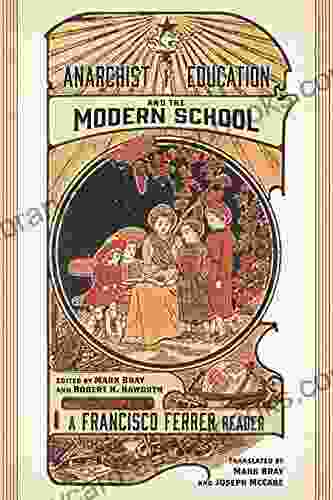Advocating Independence to the Thirteen Colonies: The Power of Words in Shaping a New Nation

4 out of 5
| Language | : | English |
| File size | : | 2140 KB |
| Text-to-Speech | : | Enabled |
| Screen Reader | : | Supported |
| Enhanced typesetting | : | Enabled |
| Word Wise | : | Enabled |
| Print length | : | 47 pages |
| X-Ray for textbooks | : | Enabled |
In the annals of American history, few documents hold as much significance as Thomas Paine's electrifying pamphlet, "Common Sense." Published in 1776, at a time when the thirteen colonies teetered on the precipice of revolution, "Common Sense" became a catalyst for independence, igniting a fire that would ultimately reshape the course of a nation.
A Masterful Orator of Liberty
Thomas Paine, a radical thinker and gifted orator, possessed an innate ability to connect with the common man. His words, infused with passion and logic, resonated with the colonists, who yearned for freedom from British rule.
"Common Sense" was not merely a political treatise; it was a revolutionary manifesto that appealed to the hearts and minds of its readers. Paine's prose flowed with an eloquence that captivated audiences and inspired them to question the very foundations of their society.
Challenging the Legitimacy of Monarchy
At the core of Paine's argument lay a fundamental critique of monarchy. He denounced the notion of hereditary rule, arguing that it violated the principles of natural justice and equality.
"Every King, and every chief Magistrate, is a kind of Conqueror, who imposes, whether with or without arbitrary power, new laws upon the Community." – Thomas Paine, "Common Sense"
He appealed to the colonists' sense of reason and self-determination, urging them to reject the tyranny of distant rulers and embrace the ideals of a republic.
Exposing the Hypocrisy of British Rule
Paine did not limit his critique to monarchy alone. He also exposed the hypocrisy and injustice of British rule, highlighting the disparity between the colonists' treatment and the rhetoric of the British government.
"The cause of America is in a great measure the cause of all mankind." – Thomas Paine, "Common Sense"
He argued that the British had violated the colonists' rights and liberties and that it was their natural duty to resist oppression and fight for their independence.
A Call to Action
"Common Sense" was not simply a philosophical treatise; it was a call to action. Paine exhorted the colonists to embrace their destiny and fight for the cause of freedom.
"We have every opportunity and every encouragement before us to make this contest. We have no need of a splendid government to support us; the spirit of the People will be a law unto itself." – Thomas Paine, "Common Sense"
His words ignited a fire within the hearts of his readers, inspiring them to take up arms and fight for their liberation.
Profound Impact on the American Revolution
The impact of "Common Sense" on the American Revolution cannot be overstated. It became an instant bestseller, selling over 500,000 copies in its first year alone.
The pamphlet's powerful message resonated with the colonists, encouraging them to embrace the principles of self-governance and independence. It helped rally support for the cause of liberty and became an iconic symbol of the American Revolution.
A Legacy of Inspiration
Even today, Thomas Paine's words continue to inspire those who seek freedom and justice. "Common Sense" remains a timeless and powerful document, a testament to the transformative power of words and the indomitable spirit of the human desire for liberty.
In its pages, we find not only a chronicle of America's birth but also a profound reflection on the nature of human rights, the importance of self-determination, and the enduring power of the written word.
4 out of 5
| Language | : | English |
| File size | : | 2140 KB |
| Text-to-Speech | : | Enabled |
| Screen Reader | : | Supported |
| Enhanced typesetting | : | Enabled |
| Word Wise | : | Enabled |
| Print length | : | 47 pages |
| X-Ray for textbooks | : | Enabled |
Do you want to contribute by writing guest posts on this blog?
Please contact us and send us a resume of previous articles that you have written.
 Book
Book Novel
Novel Page
Page Chapter
Chapter Text
Text Story
Story Genre
Genre Reader
Reader Library
Library Paperback
Paperback E-book
E-book Magazine
Magazine Newspaper
Newspaper Paragraph
Paragraph Sentence
Sentence Bookmark
Bookmark Shelf
Shelf Glossary
Glossary Bibliography
Bibliography Foreword
Foreword Preface
Preface Synopsis
Synopsis Annotation
Annotation Footnote
Footnote Manuscript
Manuscript Scroll
Scroll Codex
Codex Tome
Tome Bestseller
Bestseller Classics
Classics Library card
Library card Narrative
Narrative Biography
Biography Autobiography
Autobiography Memoir
Memoir Reference
Reference Encyclopedia
Encyclopedia Anatole France
Anatole France Amy Gaines
Amy Gaines Alyssa Maxwell
Alyssa Maxwell Amanda Skou
Amanda Skou Daniel J Brahier
Daniel J Brahier Amy Walsh
Amy Walsh Andrew Rawnsley
Andrew Rawnsley Ferniko
Ferniko Amory Morena
Amory Morena Amy Banks
Amy Banks Myra Mendible
Myra Mendible Michael A Singer
Michael A Singer Brendan Ruud
Brendan Ruud Edgar Cantero
Edgar Cantero Andrew B Arnold
Andrew B Arnold Robert J Marzano
Robert J Marzano Julia Pazdro
Julia Pazdro Parvinder Mehta
Parvinder Mehta Samuel Charters
Samuel Charters Ana Beatriz Pires De Assis
Ana Beatriz Pires De Assis
Light bulbAdvertise smarter! Our strategic ad space ensures maximum exposure. Reserve your spot today!

 Mario BenedettiTop Hits of 2024 Easy Guitar With Notes Tab: Your Gateway to Musical Mastery
Mario BenedettiTop Hits of 2024 Easy Guitar With Notes Tab: Your Gateway to Musical Mastery
 Philip BellUnveiling Human Culture and Society: The Anthropology Britannica Guide To The...
Philip BellUnveiling Human Culture and Society: The Anthropology Britannica Guide To The... Rex HayesFollow ·13.2k
Rex HayesFollow ·13.2k Hugh BellFollow ·15.3k
Hugh BellFollow ·15.3k Leon FosterFollow ·5.8k
Leon FosterFollow ·5.8k Jorge AmadoFollow ·18.9k
Jorge AmadoFollow ·18.9k Albert CamusFollow ·5.6k
Albert CamusFollow ·5.6k Clayton HayesFollow ·12k
Clayton HayesFollow ·12k Hugh ReedFollow ·11.6k
Hugh ReedFollow ·11.6k John KeatsFollow ·10.5k
John KeatsFollow ·10.5k

 Roald Dahl
Roald DahlImmerse Yourself in a Mesmerizing Tapestry of Creativity:...
Prepare to be captivated by "Spectra," an...

 Clarence Brooks
Clarence BrooksUnleash Your Inner Taylor with Red Piano Vocal Guitar:...
Embrace the Red Era...

 Jeffrey Hayes
Jeffrey HayesUnlock Your Child's Academic Potential: A Comprehensive...
In today's rapidly changing...

 William Golding
William GoldingBrave Elizabeth: A Captivating Tale of Resilience and...
Immerse Yourself in a Riveting Historical...

 Curtis Stewart
Curtis StewartUnveiling the Heartfelt Melodies of Taylor Swift: A...
Step into the enchanting world of Taylor...
4 out of 5
| Language | : | English |
| File size | : | 2140 KB |
| Text-to-Speech | : | Enabled |
| Screen Reader | : | Supported |
| Enhanced typesetting | : | Enabled |
| Word Wise | : | Enabled |
| Print length | : | 47 pages |
| X-Ray for textbooks | : | Enabled |










